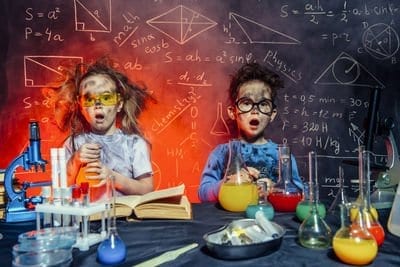This is the time of year the focus of the world is on education and preparing our children to learn and grow toward success. We enroll the children in classes, schools, programs and activities in hopes they will get an education to prepare them for the future. Is our current educational plan adequate for the future our children will face? How can we know what they will need when the future is uncertain? Will foreign languages, advanced math classes, and programs designed to enhance talents be enough? What is most important?
The Beginning of Schooling in America
Today there are a few educational theorists who believe that if parents would get out of the way then children would be free to get a better education. However, the majority of society still knows that children need direction and instruction from wise adults and parents throughout their education because proper moral development requires guidance. From the time parents took education upon themselves, prior to common schooling practices today, adults have acknowledged two kinds of education: intellectual education and moral education.
Moral education encompasses learning honesty, respect for others, responsibility, duty, virtues and good citizenship. It helps young people acquire virtues and develop moral habits that will prepare them to live good and happy lives. It also helps them become valuable and contributing members of society.
When common schools were first started in Dedham, part of the Massachusetts Bay Colony in the New World, moral education was the top priority. The New England Puritans were concerned that their children learned to be good people by following the examples of those from the Bible more than any other books. The early colleges and universities followed this format as moral as well as intellectual places of learning.
What Are Youth Preparing For?
It’s often said that the only constant in life is change. Innovations consistently change the world. We regularly must adapt and learn to use new devices and machines as old ones become obsolete. The Ironrite ironing machine my mother learned to use a child didn’t prepare her for the computer I had to learn as a child. She had to adapt. Likewise, the hover boards of today will not prepare our children for the advancements of tomorrow. Clearly education for our youth isn’t about gadgets or learning to use technology. Anyone can do that. We all did it.
So, what are we preparing our youth for? Are we preparing them for a certain kind of career? Jobs phase in and out. There used to be jobs that don’t even exist anymore like typesetters, lamplighters and log drivers. What did those people do when their jobs were no longer needed? They adapted. We have jobs today that are getting replaced by software and powerful economic engines that will make some current jobs obsolete in no time. What will happen to manufacturing, editing, underwriting, teaching, farming, and many other such jobs? What will we do when we’re reduced to facilitator when we used to create lesson plans ourselves as teachers? Well, I guess we will need to adapt or innovate in a new direction.
Additionally, the political and economic climates will also always be changing. So, if technology, finances, politics and jobs will change, this means that no matter who the student is, when they complete their educational experience, the future is always uncertain.
Getting the Best Education for Adaptation
In a time when children and adults are becoming less confident in their skills and more fragile in their emotions and relationships, it’s clear something is generally missing from our current educational experiences.
Many parents are seeing this deficit and going back to historical values-based learning, which usually involves good old fashioned work. Why do parents tend to look to work when the children seem to be becoming more selfish, entitled, and emotionally fragile? Something inside every successful adult points back to the steps they made to become who they are. They know they conquered task by task and that it took years of determination, persistence and grit. They pushed themselves toward their goals by working. They remember doing chores and being made to work as children. And they realize when looking at a selfish child that work must be an important part of a good moral education.
And so it is. Philosopher Samuel Smiles said in the 1800s, “Work is the antidote for a sick character.”
The best education we can give our children is a character-building education; a moral education. Since character is crowned with duty, a person can’t have good character without morality — meaning a commitment to follow what is good, right and true. A person learns to have duty by feeling bound to serve goodness and do what is right.
So often today’s youth are taught to look at only what is self-serving. They ask themselves, “What’s in it for me?” And “What do I get out of it?” In fact, serving themselves is almost made to sound like a virtue. “Be the real you” and “achieve your dreams” are catch phrases of the day that they are indoctrinated with. These phrases don’t serve a higher power or morality. They create a new morality where the child or the person is the supreme authority.
Lest we forget, no matter what lies ahead of us, the greatest education is one that teaches character, industry, faith, intelligence, loyalty, duty and determination. This type of education will fit a man or woman for whatever lies ahead, no matter the impending changes. When individuals have a good moral education, they will always be hired, always lead and always be prepared to innovate solutions for the days ahead.
A united family environment is essential for teaching character development. These resources can help the family become more united.



